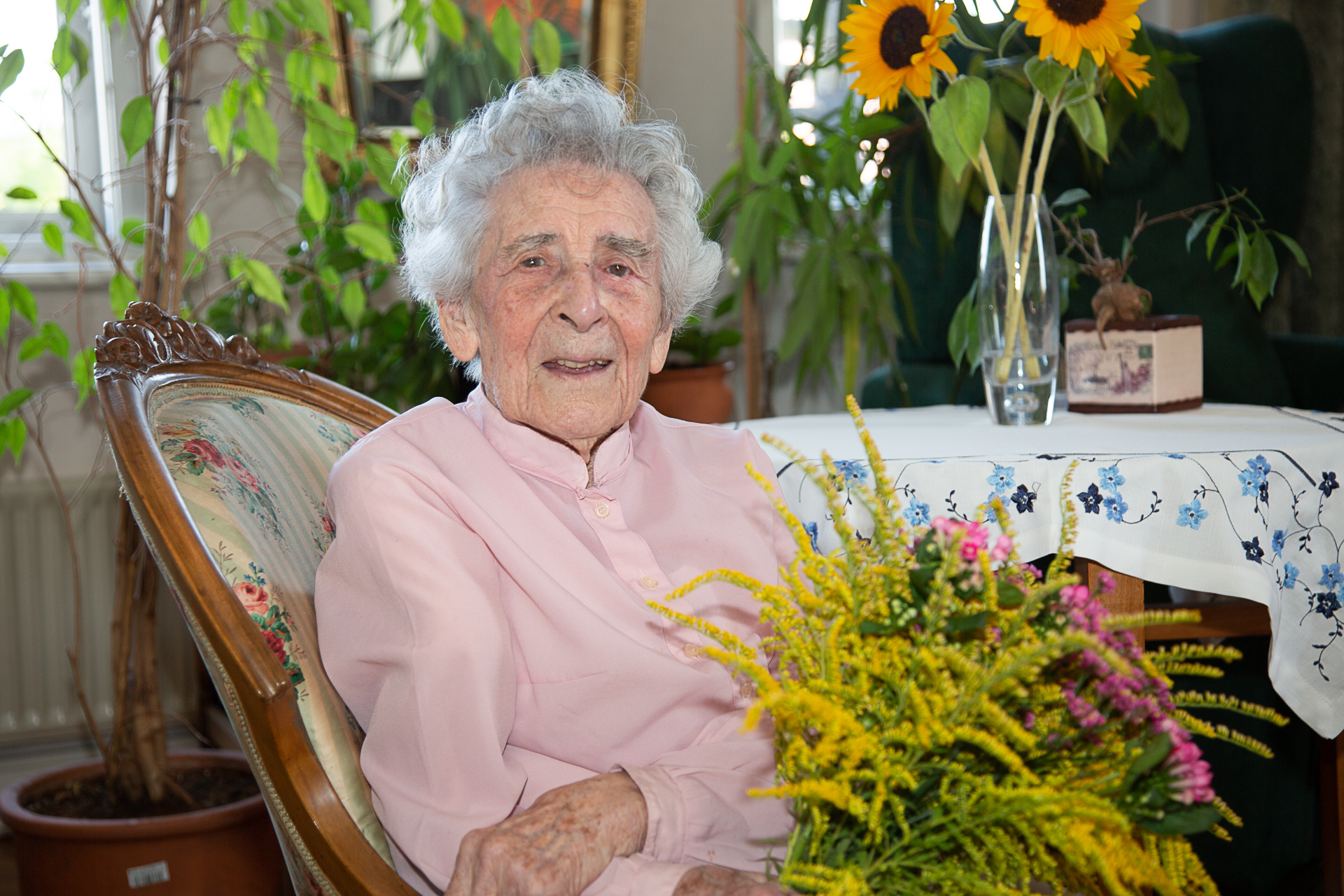Recipient of 2021 Badjura Lifetime Achievement Award: Emilija Soklič, film sound engineer and innovator
Emilija Soklič was one of the first Slovenian women, and Slovenians in general, to work in film professionally. She started her career in the first post-WWII year of 1946, when the then director of Triglav Film, Marjan Pengov, invited her to join the nascent film studio, having known her since before the war. Soklič became the first head of the Technical Department at Triglav Film, blazing a trail in a typically male profession. Due to the nature of her job, Soklič has never been in the spotlight, her work done behind the scenes, away from the public eye or knowledge. When Soklič was the head of the Triglav Film Technical Department, a post she held until 1955, she first worked on several short films, newsreels, as well as the first Slovenian fiction feature ‘On Our Own Land’. This was followed by many other pieces of cinema that now make up Slovenian film heritage, including Jože Gale’s first film about ‘Kekec’. Slovenian film history would be much the poorer if it hasn’t been for Emilija Soklič, whose selfless service provided the technical support needed for the first film production efforts. Before World.
Before World War II, Soklič was one of the first and very few women to graduate in electrical engineering from a secondary engineering school. This was a time when women were not expected to go into technical professions. As the head of the Technical Department, she undertook the difficult task of equipping the Slovenian film studio from scratch, purchasing abroad all the technical gear required to make films, such as sound and image recording devices, electronic devices and electrical equipment. Her electrical engineering knowledge was pivotal to her ability to manage at first the lighting gear and later the film production equipment at large. In 1951, under her professional guidance, Triglav Film bought two Vinten and Newall 35mm cameras. Now kept in the Slovenian Cinematheque as part of the film production equipment collection, these were, for a long time, the only two cameras used in Slovenia to make films. However, technical tools were not Soklič’s only passion: her primary concern was “her technical team”, as she liked to call them—the pioneers of Slovenian cinema, their working conditions and adequate pay.

During her tenure at Triglav Film, Soklič met Rudi Omota, and this was the start of a very close friendship and collaboration. The first results of their professional partnership came in the early 1950s when they developed magnetic sound recording, a prerequisite for getting foreign crews to work on co-productions on Slovenian soil. The transition to magnetic recording was a significant step forward for Slovenian cinema, and one that would have a positive impact on its creative potency in the years to come. This, however, was not the end of innovations in sound for Soklič and Omota: in fact, innovations became the primary focus for them at the Electroacoustics Department of the Institute for electronic communication (later ISKRA), where they both continued their careers in the mid-1950s. There, they collaborated on developing and making sound recording, editing, and reproduction equipment, especially for cinema, TV, and radio. Now kept in the Technical Museum of Slovenia, the mixing consoles created at the time were some of the first in the world to use integrated circuits. Very soon, Soklič started sharing her knowledge with young generations, teaching lighting engineering at the Cinema Engineering School, which opened for a brief period between the autumn of 1948 and the summer of 1950 as part of the Secondary Engineering School Ljubljana.
Emilija Soklič worked in circumstances that are now difficult to imagine, with a minimal budget and maximum enthusiasm. This took incredible amounts of sacrifice, courage, ingenuity, expertise, and compassion. Presenting the Badjura Lifetime Achievement Award to Emilija Soklič is, therefore, an opportunity to show respect to a pioneer film professional, but above all, an extraordinary innovator who, in collaboration with her fellow inventor, revolutionised sound recording in Slovenian cinema.
Dušan Milavec,
Chair of the panel of judges for the 2021 Badjura Award
The judges for the 2021 Metod Badjura Award: Jelka Stergel, Polona Juh, Viva Videnović, Boris Petkovič and Dušan Milavec as the chair.



